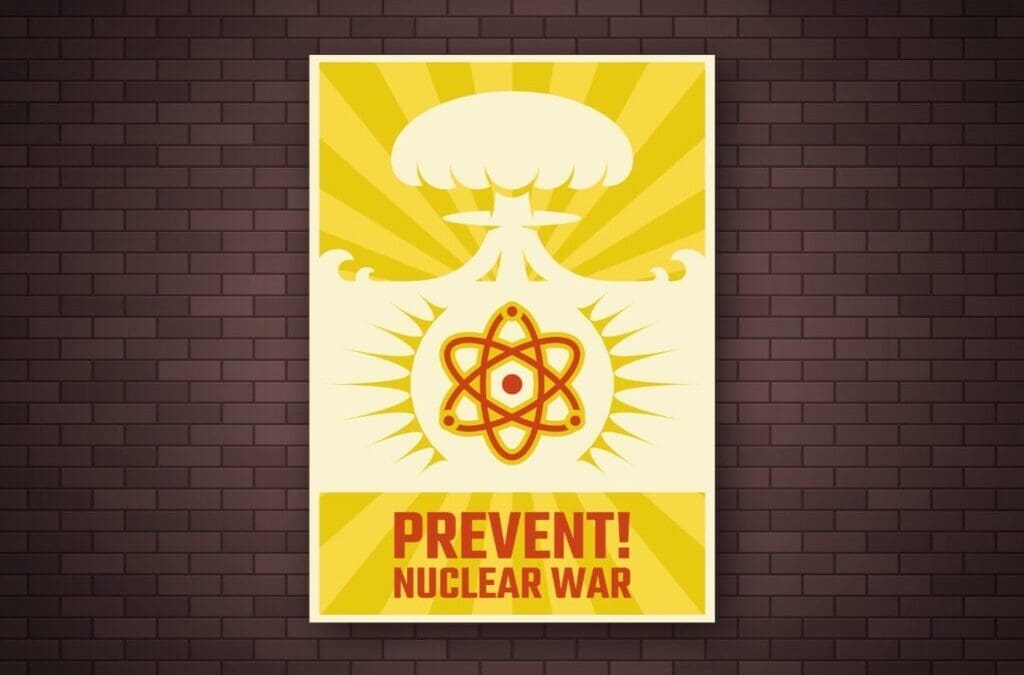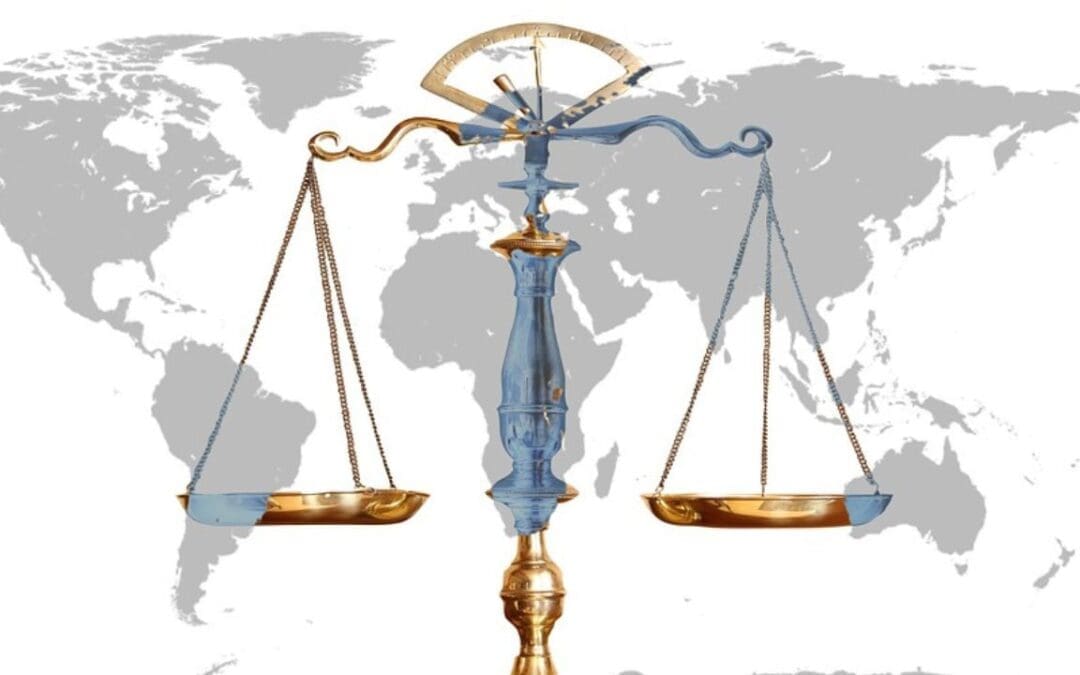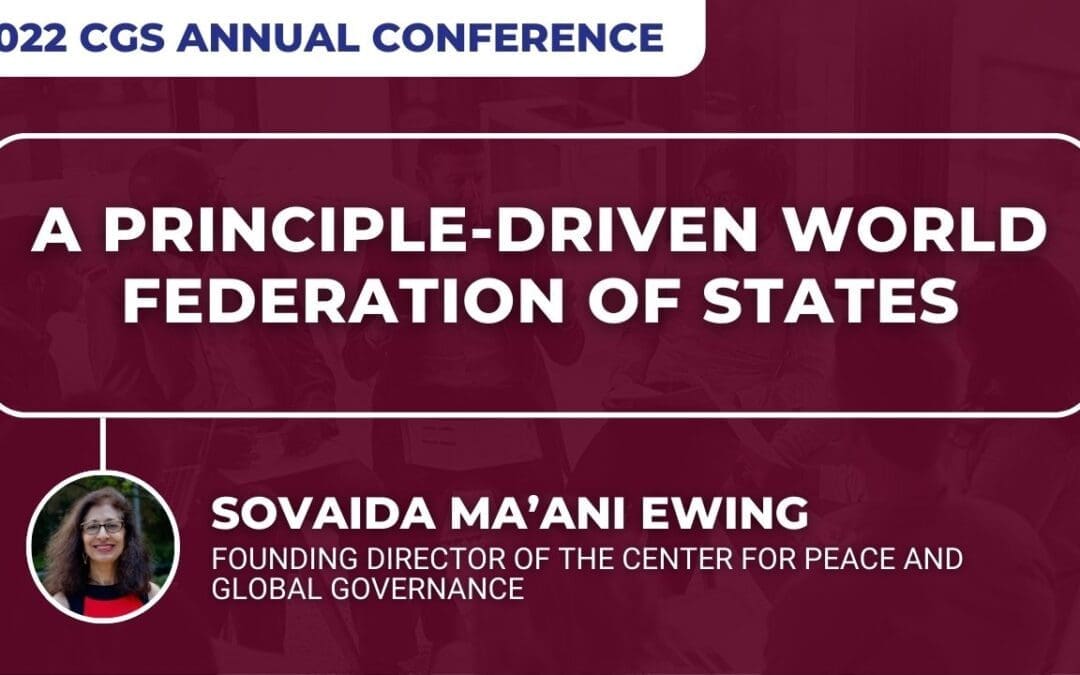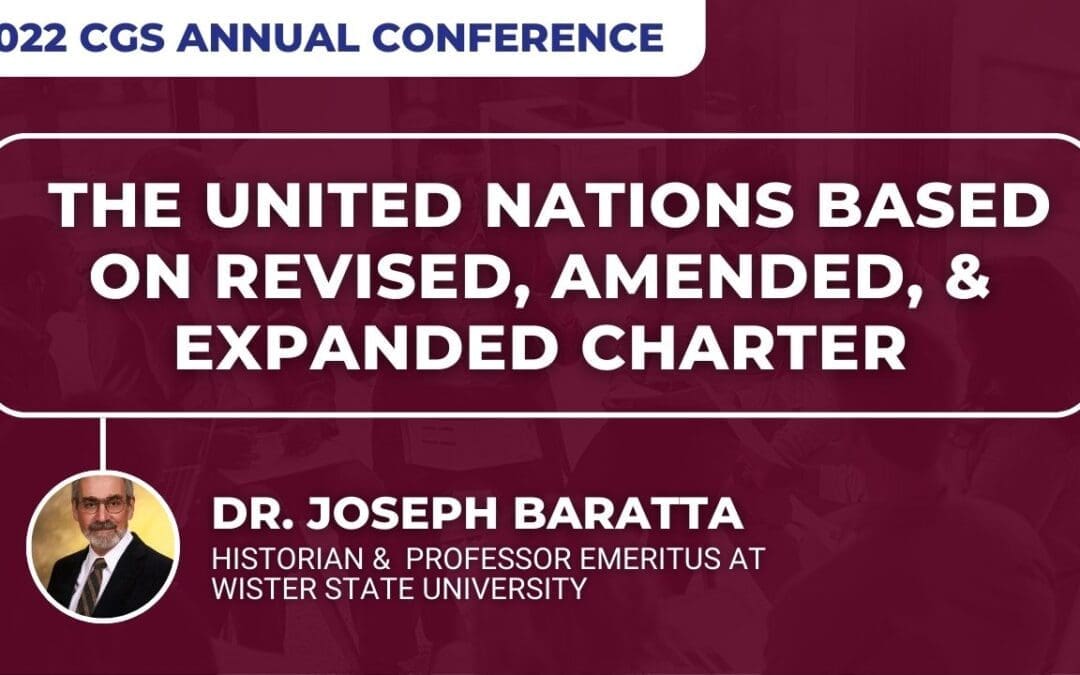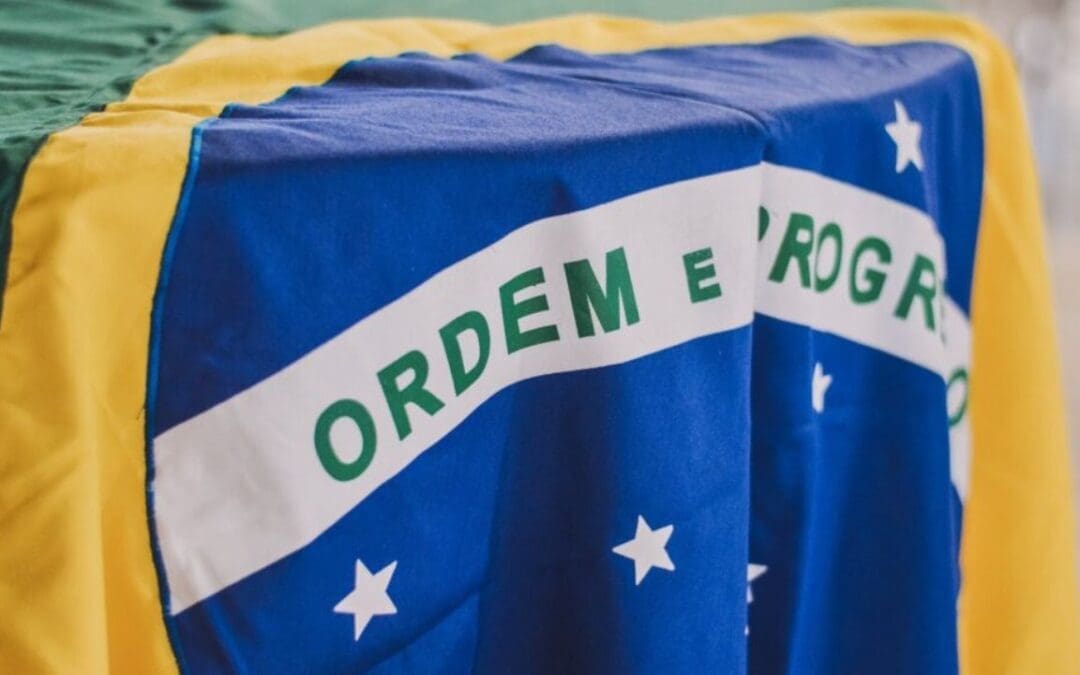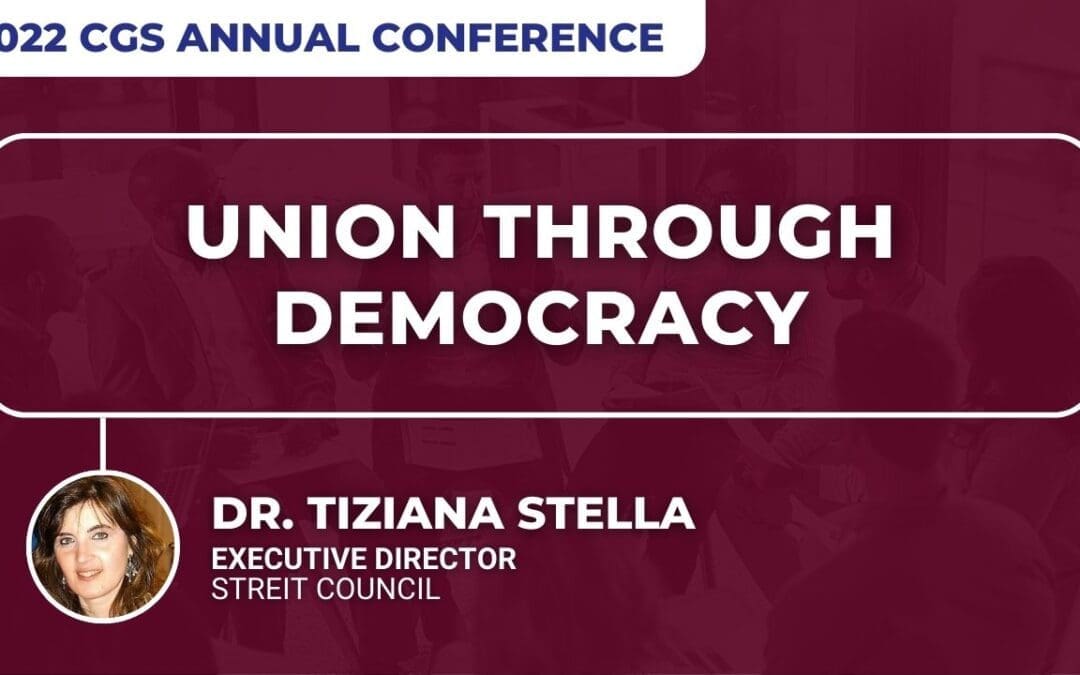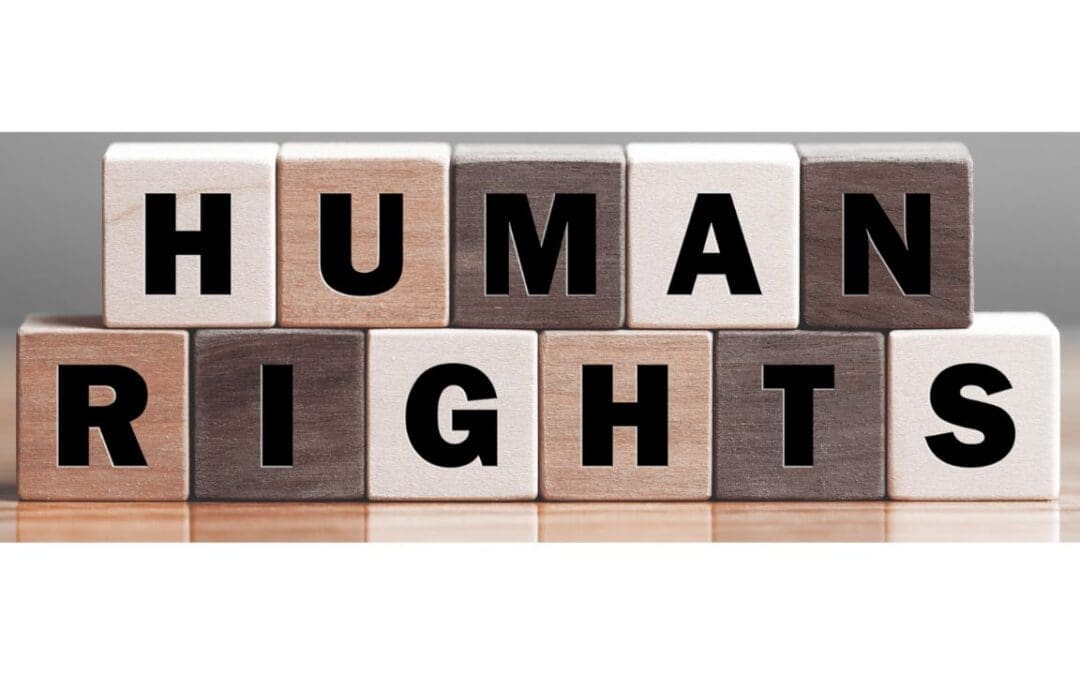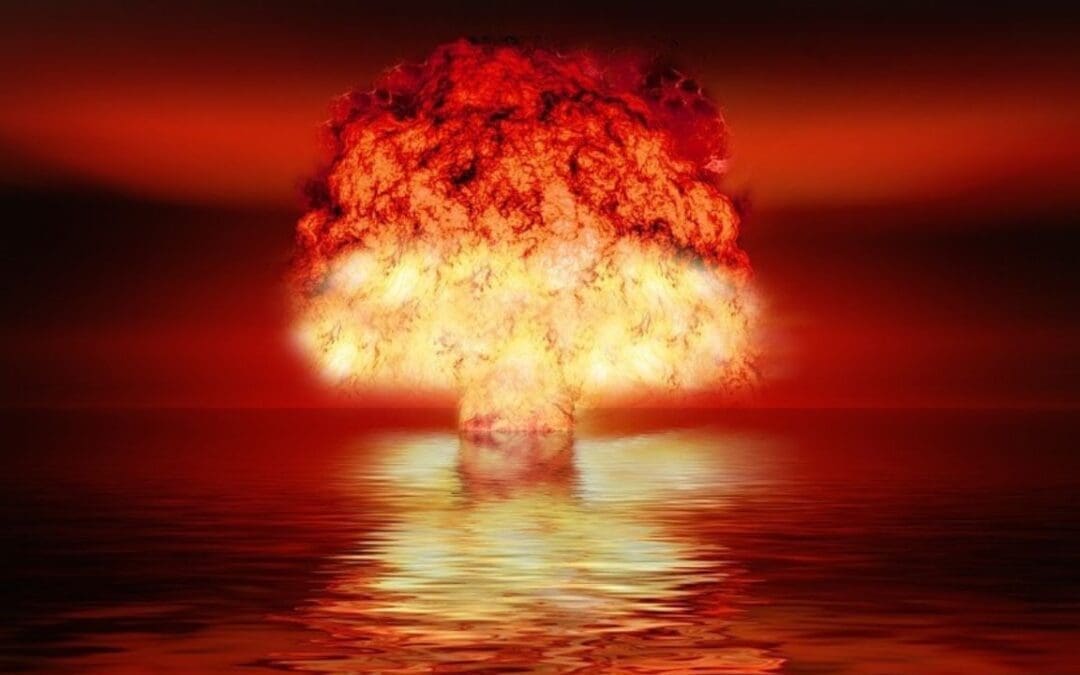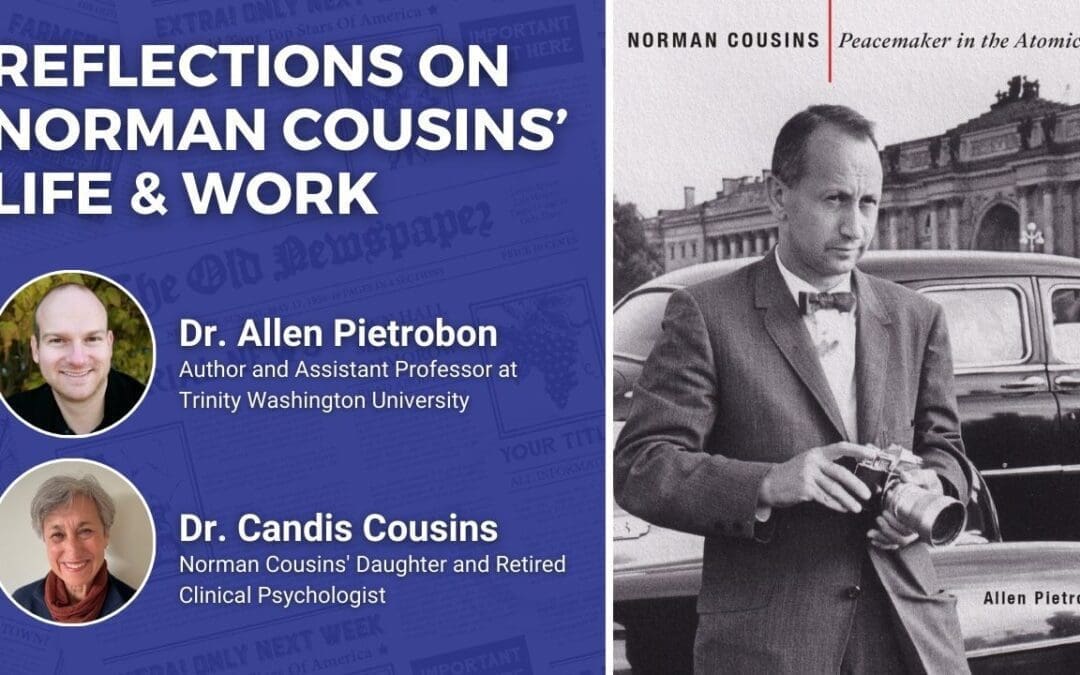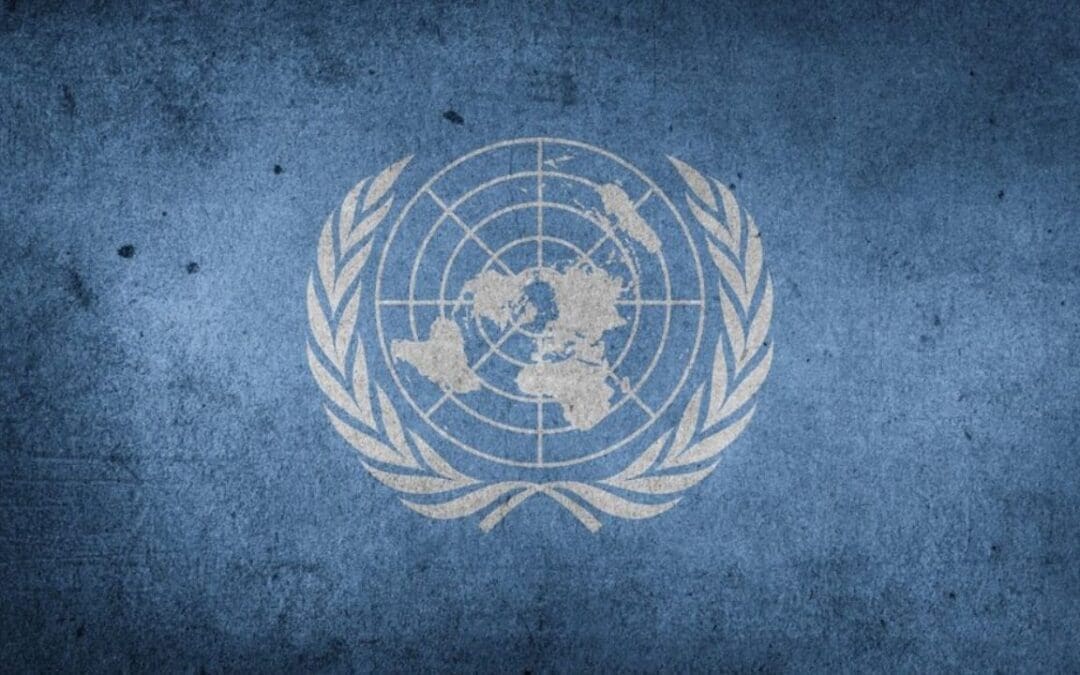
by Lawrence Wittner | Nov 28, 2022 | Disarmament, Peace
Even international alliances can unravel when nations confront the insanity of a nuclear holocaust.
An illustration of this point occurred recently, after Vladimir Putin once again threatened Ukraine and other nations with nuclear war. “To defend Russia and our people, we doubtlessly will use all weapons resources at our disposal,” the Russian president said. “This is not a bluff.” In response to this statement and to sharp UN condemnation of Russian nuclear threats, Chinese president Xi Jinping issued a public statement early this November, assailing “the use of, or threats to use nuclear weapons.” To “prevent a nuclear crisis” in Europe or Asia, he insisted, the world should “advocate that nuclear weapons cannot be used” and “a nuclear war cannot be waged.”
Aren’t these two nuclear-armed nations currently aligned in their resistance to U.S. foreign policy? Yes, they are, and when it came to Putin’s war upon Ukraine, Xi refrained from suggesting a Russian withdrawal. But nuclear war, as the Chinese leader made clear, was simply not acceptable.
This was not the first time a Russian-Chinese alliance was ruffled by a dispute over the use of nuclear weapons. An even deeper conflict occurred during the late 1950s and early 1960s when, ironically, the roles of the two nations were exactly the reverse.
At that time, the Chinese government, led by Mao Zedong, was embarked on a crash program to develop nuclear weapons. In October 1957, China’s weapons program secured a major gain when the Russian and Chinese governments signed the New Defense Technical Accord, in which the Russians agreed to supplementing the nuclear assistance they had already provided to the Chinese by supplying them with a prototype atomic bomb, missiles, and useful technical data.
But Russian officials soon had reason to doubt the wisdom of assisting China’s nuclear weapons development program. As Soviet premier Nikita Khrushchev recalled, the following month, at a Moscow conclave of Communist party leaders from around the world, Mao gave a speech on nuclear war that startled those in attendance. According to the Soviet leader, the “gist” of Mao’s speech was: “We shouldn’t fear war. We shouldn’t be afraid of atomic bombs and missiles. No matter what kind of war breaks out―conventional or thermonuclear―we’ll win.” When it came to China, Mao reportedly said, “we may lose more than three hundred million people. So what? War is war. The years will pass, and we’ll get to work producing more babies than ever before.”
Khrushchev found Mao’s remarks “deeply disturbing,” and recalled with irritation: “Everybody except Mao was thinking about how to avoid war. Our principal slogan was ‘On with the Struggle for Peace and Peaceful Coexistence.’ Yet here came Mao . . . saying we shouldn’t be afraid of war.’ In early 1958, as Soviet doubts increased about the reliability of China’s leadership in dealing with nuclear weapons, Khrushchev decided to postpone shipment of the prototype atomic bomb to China.
Eventually, the Soviet government not only withdrew its assistance to the Chinese nuclear weapons program in 1960, but took steps that placed the Soviet Union at loggerheads with the Chinese leadership. Key among these steps was working out an agreement on a nuclear test ban treaty with the governments of the United States and Britain—an agreement that, in part, was designed to block the ability of China to become a nuclear power. This Soviet shift toward a nuclear arms control and disarmament treaty with the West was bitterly opposed by China’s rulers, who were determined to develop nuclear weapons and, by 1964, succeeded in doing so. Meanwhile, the Sino-Soviet rift grew ever more heated, with the Chinese pulling out of the Soviet-dominated World Peace Council and ferociously competing with the Russians for leadership of the world Communist movement.
There are some lessons that can be learned from these incidents, in which major powers displayed signs of veering toward nuclear war. The obvious one is that even military allies might balk, at times, when they see an international confrontation slipping toward a nuclear disaster. Another, less evident, is that nations with access to nuclear weapons are not necessarily restrained from threatening or waging nuclear war by the prospect of nuclear retaliation from other nuclear powers. Or, to put it another way, nuclear deterrence is unreliable. Above all, these events and others underscore the fact that, while nuclear weapons exist, the world remains in peril.
Fortunately, abolishing nuclear weapons before they destroy the world is not an utterly utopian prospect. Thanks to popular pressure and disarmament treaties, the number of nuclear weapons around the globe has been reduced since 1986 from about 70,000 to 12,700. Moreover, a UN Treaty on the Prohibition of Nuclear Weapons, crafted and approved by an overwhelming majority of the world’s nations, went into effect in January 2021.
Unfortunately, none of the world’s nine nuclear powers has signed or ratified this nuclear weapons abolition treaty. Until they do so and, therefore, stop producing, stockpiling, and distributing nuclear weapons to other countries, the world will continue to live in a state of nuclear peril, subject only to occasional flashes of sanity by these same nuclear-armed nations.
Surely, people around the world deserve a better future.

by Jacopo DeMarinis | Nov 24, 2022 | World Federation
If humanity is to survive in the face of climate change, nuclear proliferation, and international political conflict, we must muster the courage to act with conviction and unity. On every level, starting at the individual and rising to the nation state, we must adopt the mindset with which world leaders approached the enormous task of ensuring global peace following the horrors of World War II. Yet, unfortunately, we are currently lacking that conviction and that unity.
Multilateral institutions have all too often failed to fulfill their mandate. António Guterres, the UN Secretary-General, publicly acknowledged the failure of the UN Security Council, the organ of the United Nations tasked with ensuring global security and peace, to prevent or end the Ukraine war. The Security Council has been ineffective because it is composed of five permanent members―the United States, China, Russia, France, and Britain―that have veto power that can block any resolution set forth to cope with conflict, as Russia has repeatedly done with respect to the Ukraine war.
Although there is a general consensus that the climate crisis must be addressed internationally, climate accords tend to be legally unenforceable and are easily stymied by disagreement over which countries are most responsible for cutting back on fossil fuel emissions and how to establish a roadmap for emissions reduction. For example, the Paris Accords require countries to set their “national determined contributions,” which can be lax or stringent, and rely mainly on peer pressure to promote compliance. Furthermore, the backing of the largest emissions contributors, the United States and China, is crucial if these agreements are to be effective. International action on climate change was greatly hindered by the U.S. government’s decision against ratifying the Kyoto Protocol, just as the Paris Agreement suffered greatly when the Trump administration decided to pull the United States out of it.
Nor do our current global institutions seem capable of securing nuclear disarmament. Nuclear weapons states (NWS) like Russia, China, and the United States have recently failed to honor their nuclear disarmament commitments, with the Russian government refusing to back the final draft of an updated declaration on the nuclear Non-Proliferation Treaty (NPT). Furthermore, China, the United States, Russia, and the six other NWS have declined to support the Treaty on the Prohibition of Nuclear Weapons, an agreement promoted by non-nuclear weapons states frustrated with the failure of the nuclear powers to adhere to the nuclear disarmament commitments laid out in the NPT.
To effectively address these transnational threats, we need to begin strengthening and transforming the United Nations into a democratically-elected world federation. This is a colossal yet imperative task currently promoted by the World Federalist Movement and its U.S. member organization, Citizens for Global Solutions.
Why is a world federation necessary?
As the philosopher Emery Reves argued, the Industrial Revolution ushered in an economically and physically interdependent world while leaving political decision-making power in the hands of individual states. This is a lawless system that gave rise to the world wars. The only way to prevent conflict is to transfer some political authority to a higher source: a world government. Norman Cousins, former editor-in-chief of the Saturday Review, put the need for world federalism in the context of the atomic age, arguing that the advent of the nuclear bomb made national sovereignty “obsolete.” In an unregulated international environment, any country could easily acquire nuclear weapons, thereby threatening the national sovereignty of others, as well as all humankind. Thus, the concession of absolute national sovereignty is essential to secure the stability and survival of all nations in the future.
How can a world government be created?
One key proposal is to strengthen the United Nations by transforming the General Assembly into a world legislature that can pass binding resolutions. Richard Hudson, a world federalist, argued that such a legislature could employ a procedure for decision-making in which binding resolutions would be approved with a two-thirds majority vote of the current member states, countries that represent two-thirds of the total population of the member states, and nations that contribute two-thirds of funds to the world government’s budget. World federalists also advocate reforming the UN Security Council by revoking the veto and increasing the number of permanent members on the Council, key reforms supported by figures like Brazil’s newly-elected president, Lula da Silva. Other key suggestions include creating an “International Disarmament Organization” and strengthening the International Criminal Court.
The newly created world government could be equipped to effectively address climate change, interstate conflict, and nuclear proliferation. Each country’s national military could be reduced to what is required for internal policing, diverting military budgets into domestic infrastructure that would enhance its citizens’ quality of life. An “international peacekeeping force” could be created to enforce world law and prevent interstate conflict as part of an international executive branch. Furthermore, the democratically-elected world legislature could require the complete disarmament of weapons of mass destruction, including nuclear weapons. As for climate change, the world government could issue binding resolutions guiding the Earth toward a more sustainable future through green technology and climate change mitigation. Furthermore, some world federalists and environmental activists advocate the creation of an International Court for the Environment, which could provide an enforcement mechanism for climate treaties.
Is a world republic is unattainable?
What country would agree to limit its absolute sovereignty? And yes, a country whose political leaders are held captive by special interests like military contractors and the fossil fuel industry might not agree to such an arrangement. Yet if the people unite with conviction to claim their right to live in a peaceful world, free from nuclear weapons, and to enjoy an economically and environmentally sustainable future―birthrights a world federal government is uniquely positioned to protect―this seemingly unattainable dream could become our reality.

by Citizens for Global Solutions | Nov 10, 2022 | Past Event
Sovaida Ma’ani Ewing is an author, speaker, international lawyer, and founding director of The Center for Peace and Global Governance. She also is a member of the CGS Board of Directors. Of all the presenters at this conference, she is the only one who created the model she’s presenting! It is the most contemporary of all the models.

by Citizens for Global Solutions | Nov 9, 2022 | Past Event
Dr. Joseph Baratta presents a model from Clark and Sohn, the United Nations based on revised, amended, & expanded charter. Their ideas would have moved the UN significantly toward becoming a federal world government, and it remains one of the most significant historical models in the field.
Dr. Joseph Baratta is one of the foremost historians of the world federalist movement and the efforts to strengthen the United Nations. He is professor emeritus at Wister State University and author of the two-volume work, The Politics of World Federation.

by Nicola Vallinoto | Nov 7, 2022 | Climate Justice
On the last weekend of October 2022, Brazil elected a new president: Luiz Inácio Lula da Silva, who defeated Jair Bolsonaro in a closely-fought second-round vote. Lula secured 50.8 percent of the vote compared to Bolsonaro, who garnered 49.2 percent.
On the last weekend of October 2022, Brazil elected a new president: Luiz Inácio Lula da Silva, who defeated Jair Bolsonaro in a closely-fought second-round vote. Lula secured 50.8 percent of the vote compared to Bolsonaro, who garnered 49.2 percent .
The return to office for Lula, who led the country from 2003 to 2010, would mark an extraordinary political change from a nationalist government to a government better inclined towards international democracy.
“Today the only winner is the Brazilian people,” Lula da Silva told the crowds gathered at a Sao Paulo hotel. “This isn’t a victory of mine or the Workers’ Party, nor the parties that supported me in campaign. It’s the victory of a democratic movement that formed above political parties, personal interests and ideologies so that democracy came out victorious.”
We can say that in addition to the Brazilian people, the world has also gained victory from da Silva’s victory because the proposals of the new president concern us all. Indeed, point of views of Lula and Bolsonaro deeply differ on various issues. The two politicians diverging views on these issues are subsequently outlined.
On the Amazon and climate change
Speaking during the annual debate in the UN General Assembly on Sept. 24 2019, Mr. Bolsonaro, who negates climate change, stressed that “the Amazon is not now destroyed by the flames, as the media would like to believe.” Bolsonaro underlined that “It is a fallacy to say that the Amazon is the heritage of humankind, and a misconception, as confirmed by scientists, to say that our Amazonian forests are the lungs of world. Using these fallacies, certain countries instead of helping, embarked on the media lies and behaved in a disrespectful manner and with a colonialist spirit. They even called into question that which we hold as the most sacred value: our own sovereignty.”(1) He also thanked Donald Trump who shares his approach to national sovereignty.
But reality says than since Bolsonaro took office since January 2019, deforestation has almost doubled compared to the previous year. During 2020 and 2021, Brazil’s greenhouse gas emissions increased by 9.5%. Of all emissions, 46% were due to deforestation, mainly driven by illegal mining and livestock expansion.
Preliminary reports indicate that in 2022, deforestation will reach record levels in the Amazon region. Izabella Teixeira, Brazil’s former environment minister from 2010 to 2016, promised to update the country’s nationally determined contribution (NDC) to the Paris Agreement, which outlines its plans to cut emissions. Brazil proposed its first NDC in September 2015 and has since updated it twice, the first time being in 2020 and the second in 2022. In both updates, made under Bolsonaro’s term as president, the country used accounting tricks to weaken its climate goals.
Conversely, according to Teixeira, Lula’s priority is to curb deforestation, the country’s main source of emissions, which has surged to a decade high under Bolsonaro (2).
In an article published by Le Monde (3) Lula da Silva affirmed that “today, the climate emergency, rising inequality and geopolitical tensions reveal the seriousness of the crisis affecting our planet. Unfortunately, Jair Bolsonaro has continued to make this situation worse by practicing climate revisionism, undermining the institutions of our democracy and promoting intolerance. Brazil, under my presidency, will again benefit from public policies aimed at improving the lives of our people and inspiring strong initiatives in favor of the protection of the environment, in particular the Amazon, and the fight against poverty in the world.”
On a Multipolar world
Lula da Silva explained his view on international affairs in the Tribune of Le Monde asserting that: “my goal now is to do more and better. For this, it is necessary for Brazil to be present at major international debates. We will develop a sovereign and active foreign policy. We will work for peace, dialogue and international cooperation. We believe in a multipolar world, and unlike some members of the Bolsonaro government, we do not believe that the Earth is flat and that the climate change does not exist. My Government will work with other countries to rebuild the Amazon Fund and thus take care of the Amazon rainforest and biodiversity.
In Latin America, we will strengthen Mercosur [Argentina, Brazil, Paraguay, Uruguay] and relaunch regional integration. We no longer want Latin America to limit itself to the sole export of raw materials. In this sense, we will work so that our countries can once again industrialize and technologically progress.
Faced with the growing rivalries between China and the United States, we want to dialogue with everyone, and build a strategic partnership with the European Union (EU). Improving the terms of the agreement Mercosur-EU will allow us to increase our trade, deepen our bonds of trust and strengthen the defense of our common values.
On the other hand, the priority of my government will be to restore the relationship with the African continent. Brasil will be present to help and expand political, economic and social cooperation with its countries. We believe – and, in winning, we will work – for a multipolar world united around values such as solidarity, cooperation, humanism and social justice. Faced with the challenges of civilizations that we live, we believe in a new global governance that must begin with the expansion of the UN Security Council and the establishment of new forms of cooperation between countries. We believe that another Brazil is possible, and that another world is possible because, in a past not so far away, we had started building it.”
In 2020, Lula published(4) a call “For a Multipolar World.” The call’s goal is “the creation of a multipolar world, free from unilateral hegemony and from sterile bipolar confrontation,” that “would permit a true re-founding of the multilateral order, based on principles of real multilateralism, in which international cooperation can truly flourish.” The call continues affirming that: “There seems to be an almost universal consensus that the world system will have to be rebuilt in a very fundamental way. It is not impossible, indeed it is imperative, that a certain number of states or supranational entities — such as a reborn European Union and the institutions dedicated to the integration of developing countries in Latin America, Africa and Asia (which will have to be reinforced or recreated) — shall look for alliances and partnerships, in a way that contributes to the creation of a multipolar world, free from unilateral hegemony and from sterile bipolar confrontation.”
On Latin American integration and Sur
In a speech at a rally on May 2nd 2022 Lula said, “We are going to create a currency in Latin America, because we can’t keep depending on the dollar”. He revealed that the currency would be called the Sur, which means “South” in Spanish. Lula explained that countries in Latin America could still keep their sovereign domestic currency, but they could use the Sur to do bilateral trade with each other, instead of having to exchange for US dollars. The Sur could also help to contain inflation in the region, Lula argued. He said the goal of the currency would be to deepen Latin American integration and strengthen the region’s economic sovereignty, weakening its dependence on the United States. Under Brazil’s current government, led by far-right leader Jair Bolsonaro, the South American giant has subordinated itself to Washington(5).
On the UN Security Council
Concerning global governance, Lula da Silva defends a new world governance, which would include the enlargement of the UN Security Council, and the creation of new institutions that “act differently from the IMF.” At a press conference with foreign media in Sao Paulo on August 22nd, Lula said that more countries need to become permanent members of the U.N. Security Council, so that the United Nations can better deal with Russia’s invasion of Ukraine, and growing tensions between China and Taiwan. Noting that the geopolitical landscape is changing, Lula said that the Security Council needs more and more nations and that the right to veto, held by its current five permanent members must be abolished. He asked why Brazil and countries such as Mexico, Egypt, Germany, South Africa and Japan cannot become permanent members, calling for Security Council reform based on geopolitics of the 21st century (6).
Contrary to what Lula said about the UN reform, the enlargement of the Security Council should follow a different and more representative composition. The federalists think that a regional representation (European Union, African Union, Mercosur, etc.) is more inclusive than a national one as proposed by new Brazilian President. Instead the proposal to abolish the anachronistic veto right of the five permanent members of Security Council is fully shareable. Even still, da Silva’s proposals point us in the right direction towards much needed reform in the international global governance system, and the hope here is that this will build some momentum and discourse around this issue.
The Lula da Silva’s victory in Brazil’s recent presidential election could represent a new start for international democracy. Let’s continue to watch the new government’s first steps on foreign policy, and see whether Lula’s electoral commitments will become reality.
https://news.un.org/en/story/2019/09/1047192
https://www.climatechangenews.com/2022/10/07/lula-campaign-update-brazil-climate-plan-ndc-new/
https://www.lemonde.fr/en/opinion/article/2022/10/29/luiz-inacio-lula-da-silva-another-brazil-is-possible_6002211_23.html
https://progressive.international/blueprint/8c4c685c-7ac6-4bbb-8b0b-5fc91fcc68f0-lula-da-silva-celso-amorim-for-a-multipolar-world/en
https://multipolarista.com/2022/05/04/brazil-lula-latin-america-currency-us-dollar/
https://www.nippon.com/en/news/yjj2022082300559/
This article originally appeared here: https://www.wfm-igp.org/federalist-paper/lulas-victory-in-brazils-presidential-election-a-potential-new-start-for-international-democracy-and-climate-change/

by Citizens for Global Solutions | Nov 7, 2022 | Past Event
Shortly before WWII, an American Journalist named Clarence Streit proposed that the 15 most advanced democracies of the time form a union that would be so powerful that Hitler would not dare to attack it, thus preventing WWII. He reasoned that over time other nations could join the union, which would eventually lead to a world federation.
Dr. Tiziana Stella is the Executive Director of the Streit Council, carrying on the work of Clarence Streit. This evening she will present his model – Union through Democracy – as well as discuss how it might be updated to fit our current political reality.

by Citizens for Global Solutions | Nov 3, 2022 | Organizational Statement
What We all Deserve: Let’s Protect Human Rights with a Global Government and Judicial System
Washington, DC– On October 25th, in Moscow court, WNBA basketball star and Olympic medalist Brittney Griner was denied an appeal to shorten her nine-year sentence in a Russian penal colony for drug-smuggling. Griner was detained at a Moscow airport in February for carrying less than one gram of cannabis in her luggage. The arrest is even more troubling in light of the Russian invasion of Ukraine.
Specific details as to Griner’s arrest and conviction corroborate National Security Analyst Steve Hall’s assertions regarding the illegitimacy of the court proceedings. Russian authorities did not provide Griner with a lawyer after her arrest and coerced her into signing documents written in Russian. Furthermore, she was not informed of her constitutional rights within three hours of her arrest, in violation of Russian law. And, most shockingly, the average sentence for comparable drug offenses is only 5 years, with roughly a third of defendants receiving parole.
Washington Post columnist Jason Rezaian, who was unjustly detained in Iran for 544 days, asserts that the Russian government is holding Griner as a political prisoner to gain leverage to counter the inevitable political and economic backlash against its invasion of Ukraine. Griner is one of 442 other political prisoners unjustly imprisoned by the Russian government (as of April 5, 2022), according to Memorial Human Rights Centre, a well-known Russian human rights organization which was recently shut down by the government.
In response to the developments regarding Brittney Griner’s case, Donna Park, Board Chair of Citizens for Global Solutions, issued the following statement:
“What we need to protect Brittney Griner and secure the liberation of countless other political prisoners is a democratic world federation, promoted by world federalist organizations like Citizens for Global Solutions and Young World Federalists. We want to establish an ‘international judicial system’ that would address international issues like foreign political prisoners. Most importantly, it would require universal conformity to political/human rights laws established by a world legislature including a World Parliament to which the people of the world elect their representatives. Countries would no longer be permitted to violate peoples’ civil rights with impunity. In short, a democratic world government would, while respecting national sovereignty, bring to fruition a world all human beings yearn for, characterized by a respect for human rights, a commitment to justice, and a just peace that we all need.”
About Citizens for Global Solutions & Young World Federalists
Citizens for Global Solutions (CGS) is a non-governmental, non-profit, non-partisan membership-based organization that for more than 75 years has brought together a diverse collective of individuals and organizations with a common goal of a unified world predicated upon peace, human rights, and the rule of law. From championing ratification of the UN Charter upon our establishment in 1947 to supporting creation of the International Criminal Court (ICC) 25 years ago to advocating for global instruments to confront today’s enduring challenges of war and climate degradation, CGS recognizes that true progress is a generational enterprise. We invite like-minded individuals and organizations to join us in this mission.
The Young World Federalists are a global movement fighting to give humanity a voice. We envision a sustainable, just, and peaceful world through a democratic world federation. A world run by humanity, for humanity, providing equal opportunity to all on a thriving planet.
Contact:
Donna Park dpark@globalsolutions.org

by Lawrence Wittner | Oct 23, 2022 | Disarmament
It’s been a long time since the atomic bombings of August 1945, when people around the planet first realized that world civilization stood on the brink of doom. This apocalyptic ending to the Second World War revealed to all that, with the advent of nuclear weapons, violent conflict among nations had finally reached the stage where it could terminate life on earth. Addressing a CBS radio audience in early 1946, Robert Hutchins, chancellor of the University of Chicago, summed up the new situation with a blunt warning: “War means atomic bombs. And atomic bombs mean suicide.”
The Public Uprising Against Nuclear War
With millions of people jolted awake by the atomic bombings and anxious to stave off worldwide catastrophe, calls for banning nuclear weapons and for building a federation of nations strong enough to keep the peace were widespread. Organizations among antinuclear scientists, world government advocates, and peace proponents emerged and flourished in the United States, as well as in much of the world. Often working together in the same peace and disarmament campaigns, activists in these organizations frequently adopted a common rallying cry: “One World or None!”
For a time, these activists had public opinion on their side. In August 1946, a Gallup poll found 54 percent of American respondents favored (and only 24 percent opposed) turning the United Nations into “a world government with power to control the armed forces of all nations.” Similar polls in other nations during the late 1940s reported comparable results.
In practice, the efforts of activists went toward transforming the new United Nations into an institution that had the power to rid the world of nuclear weapons and to end the ancient practice of war. Thus, in the United States, where, by 1949, United World Federalists had some 47,000 members, it managed to get 111 members of the House of Representatives and 21 Senators to co-sponsor a resolution to turn the United Nations into “a world federation” with enough power “to preserve peace and prevent aggression.”
The Response of the “Great Powers”
Even so, while giving lip service to nuclear disarmament and peace, the world’s governments―and particularly those of the “great powers”―weren’t ready for this dramatic a departure from their traditional practices. After all, for thousands of years, competing territories, and later, nations, had been accustomed to waging wars and using the most powerful weapons available to them in these conflicts.
Yes, at times, the governments of the great powers were forced by popular pressure to curb their nuclear ambitions. In the late 1950s and early 1960s, public protest campaigns against nuclear weapons testing led to the world’s first nuclear arms control agreement (the Partial Test Ban Treaty of 1963), to the nuclear Nonproliferation Treaty of 1970, and to the beginning of Soviet-American détente. Similarly, public protest campaigns in the early 1980s against the revived nuclear arms race led to major nuclear disarmament agreements (the INF Treaty and the Start I and II treaties) and to the end of the Cold War.
But, despite these concessions, the governments of the major powers weren’t ready to dispense with nuclear weapons or, for that matter, with war. Consequently, as popular protest ebbed, they gradually returned to their customary behavior. Starting about a decade ago, they ceased signing nuclear arms control and disarmament agreements. Instead, they began scrapping them, including the INF Treaty, the Open Skies Treaty, and the Iran nuclear agreement. Meanwhile, they commenced a race to “modernize” their nuclear arsenals with the production of new nuclear weapons possessing greater speed, maneuverability, and accuracy. Also, to intimidate other nations, their leaders—most notably Donald Trump and Vladimir Putin, who commanded the world’s two largest nuclear arsenals―openly threatened to attack these nations with nuclear weapons.
Even before the Russian invasion of Ukraine, the editors of the Bulletin of the Atomic Scientists set the hands of their famed “Doomsday Clock” at 100 seconds to midnight, the most dangerous setting since the clock’s appearance in 1947.
The Alternative to Nuclear Destruction
Of course, the world could yet be saved by what Albert Einstein termed “a new type of thinking” and, decades later, by what Mikhail Gorbachev called “the new thinking.” Based on the threat nuclear weapons pose to human survival, this approach entails abolishing nuclear weapons and enhancing global governance to end their motor force, war. The UN Treaty on the Prohibition of Nuclear Weapons, snubbed by the nine nuclear powers but now signed by 91 nations and ratified by 68 of them, would, if enforced, finally lift the nightmare of nuclear destruction from the people of the world. And a strengthening of the United Nations as the guarantor of international security would help to end the long-term practice of powerful nations waging war whenever their governments felt like it.
As things now stand, however, we’re once more enmeshed in the dire situation so starkly revealed in August 1945: While nuclear weapons exist, any war can turn into a nuclear holocaust. Unless the people of all nations, recognizing the peril of universal death, demand the establishment of an international organization capable of enforcing policies of disarmament and peace, then, sooner or later, the time will come to say “bye-bye world.”

by Citizens for Global Solutions | Oct 22, 2022 | Past Event
Dr. Allen Pietrobon and special guest, Candis Cousins, to reflect on Norman Cousins’ life devoted to #peace activism and world federation perspectives. How can we as Americans and world citizens follow in his footsteps and carry on his life’s work to make the world a more peaceful place Norman Cousins was the editor of the Saturday Review for more than thirty years and had a powerful platform from which to help shape American public debate during the height of the Cold War. Under Cousins’ leadership, the magazine was considered one of the most influential in the literary world.
Cousins’ progressive, nonpartisan editorials in the Review earned him the respect of the public and US government officials. But his deep impact on postwar international humanitarian aid, anti-nuclear advocacy, and Cold War diplomacy has been largely unexplored. Starting in 1945, Cousins mobilized powerful efforts to support victims of the atomic bombing of Japan and of Nazi `medical experiments,’ to foster world federation, to halt nuclear weapons testing and abolish nuclear weapons, to build a mass peace movement in the United States (as founder and co-chair of the National Committee for a Sane Nuclear Policy), and to end the Vietnam War. At the height of the Cold War, he played a central role in securing the world’s first nuclear arms control agreement (the test ban treaty of 1963) and in securing U.S.-Soviet detente.
Dr. Allen Pietrobon, author of Norman Cousins: Peacemaker in the Atomic Age is an Assistant Professor of Global Affairs at Trinity Washington University and Chair of the Global Affairs Department. Special guest, Candis Cousins, daughter of Norman Cousins, will spotlight how Norman got involved in the peace movement and how Americans can carry his work forward.
Dr. Candis Cousins was involved in the civil rights movement in the South during her years at Oberlin College. After attending Bank Street School, she taught first grade in an all-Black school in Georgia before returning North to begin her training in psychotherapy and learning disabilities. After receiving her Ph.D in clinical psychology, she had a private practice for 33 years. Now retired, she teaches studio art and a course in perception and creativity. She lives in Oakland, California with her husband, son and daughter-in-law.

by Lawrence Wittner | Oct 13, 2022 | Peace, UN Reform
The war in Ukraine provides us with yet another opportunity to consider what might be done about the wars that continue to ravage the world.
The current Russian war of aggression is particularly horrific, featuring a massive military invasion of a smaller, weaker nation, threats of nuclear war, widespread war crimes, and imperial annexation. But, alas, this terrible war is but one small part of a history of violent conflict that has characterized thousands of years of human existence.
Is there really no alternative to this primitive and immensely destructive behavior?
Failed Alternatives
One alternative, which has long been embraced by governments, is to build up a nation’s military might to such an extent that it secures what its proponents call “Peace through Strength.” But this policy has severe limitations. A military buildup by one nation is perceived by other nations as a danger to their security. As a result, they usually respond to the perceived threat by strengthening their own armed forces and forming military alliances. In this situation, an escalating atmosphere of fear develops that often leads to war.
Actually, governments are not entirely wrong about their perception of danger, for nations with great military power really do bully and invade weaker countries. Furthermore, they wage wars against one another. These sad facts are not only demonstrated by the Russian invasion of Ukraine, but by the past behavior of other “great powers,” including Spain, Britain, France, Germany, Japan, China, and the United States.
If military strength brought peace, war would not have raged over the centuries or, for that matter, be raging today.
Another war-avoidance policy that governments have turned to on occasion is isolation, or, as its proponents sometimes say, “minding one’s own business.” Sometimes, of course, isolationism does keep an individual nation free from the horrors of a war engaged in by other nations. But, of course, it does nothing to stop the war—a war that, ironically, might end up engulfing that nation anyway. Also, of course, if the war is won by an aggressive, expansionist power or one grown arrogant thanks to its military victory, the isolated nation might be next on the victor’s agenda. In this fashion, short-term safety is purchased at the price of longer-term insecurity and conquest.
The More Promising Alternative
Fortunately, there is a third alternative―one that major thinkers and even, at times, national governments have promoted. And that is strengthened global governance. The great advantage of global governance is its replacement of international anarchy with international law. What this means is that, instead of a world in which each nation looks exclusively after its own interests―and thus, inevitably, ends up in competition and, eventually, conflict with other nations―there would be a world structured around international cooperation, presided over by a government chosen by the people of all nations. If this sounds a bit like the United Nations, that is because, in 1945, toward the end of the most destructive war in human history, the world organization was created with something like that in mind.
Unlike “peace through strength” and isolationism, the jury is still out when it comes to the usefulness of the United Nations along these lines. Yes, it has managed to pull the nations of the world together to discuss global issues and to create global treaties and rules, as well to avert or end many international conflicts and to use UN peacekeeping forces to separate groups engaged in violent conflict. It has also sparked global action for social justice, environmental sustainability, world health, and economic advance. On the other hand, the United Nations has not been as effective as it should be, especially when it comes to fostering disarmament and ending war. All too often the international organization remains no more than a lonely voice for global sanity in a world dominated by powerful, war-making nations.
The logical conclusion is that, if we want the development of a more peaceful world, the United Nations should be strengthened.
How the United Nations Could Be Strengthened
One of the most useful measures that could be taken would be to reform the UN Security Council. As things now stand, any one of its five permanent members (the United States, China, Russia, Britain, and France) can veto UN action for peace. And this is often what they do, enabling Russia, for example, to block Security Council action to end to its invasion of Ukraine. Wouldn’t it make sense to scrap the veto, or change the permanent members, or develop a rotating membership, or simply abolish the Security Council and turn over action for peace to the UN General Assembly―an entity that, unlike the Security Council, represents virtually all nations of the world?
Other measures to strengthen the United Nations are not hard to imagine. The world organization could be provided with taxing power, thus freeing it from the necessity for begging nations to cover its expenses. It could be democratized with a world parliament representing people rather than their governments. It could be bolstered with the tools to go beyond creating international law to actually enforcing it. Overall, the United Nations could be transformed from the weak confederation of nations that currently exists into a more cohesive federation of nations―a federation that would deal with international issues while individual nations would deal with their own domestic issues.
Against a backdrop of thousands of years of bloody wars and the ever-present danger of a nuclear holocaust, hasn’t the time arrived to dispense with international anarchy and create a governed world?
